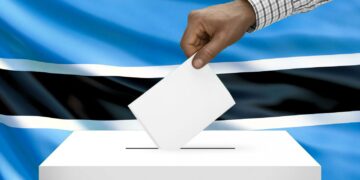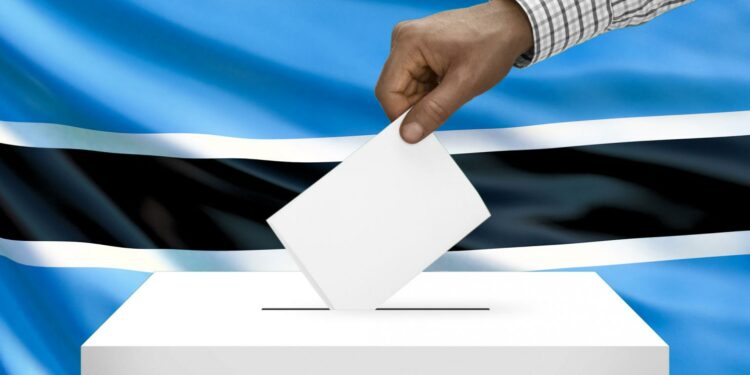By Enyichukwu Enemanna
President of Botswana, Mokgweetsi Masisi will slug it out with three leading opposition figures as the country holds its general election on Wednesday, with his Botswana Democratic Party (BDP), that has ruled the diamond-rich nation since 1966 seeking to extend its stay in office.
Masisi is gunning for a second term as leader of the southern African state with 2.3 million population.
Analysts have predicted that the exercise will be keenly contested, although a divided opposition could be an advantage to the governing BDP that has been in power since the country’s independence from Britain 58 years ago.
Botswana has enjoyed democratic stability and relative prosperity, owing to its diamond wealth and small population.
The world’s top producer by value of the gem also enjoys free healthcare and education.
Opponents have accused the governing BDP of economic mismanagement and corruption as it has been in power too long, an allegation it denies.
“Our diamonds have not been selling since April so yes, our revenues are down but the economic fundamentals still remain intact,” Masisi said at a presidential debate last week.
“We are going to continue with the projects and policies we have come up with that are aimed at putting more money and wealth into the hands of the citizens of this country,” he said.
His main challenger is Duma Boko of the opposition coalition Umbrella for Democratic Change (UDC).
The other candidates are Dumelang Saleshando of the Botswana Congress Party and Mephato Reatile of the Botswana Patriotic Front, who is enjoying the support of former President Ian Khama who quit the BDP after a feud with Masisi.
Opponents have attacked Masisi’s economic record, citing rising unemployment, which stands at around 28%.
“It is not acceptable that a country such as ours which is the fifth richest per capita in Africa still has so many people living in poverty,” said Boko at the debate.
Heritage Times HT reports that some of the achievements of President Masisi during his first tenure is negotiating a new contract with diamond giant De Beers which will give Botswana a greater share of its rough diamonds, as well as lifting a ban on elephant hunting which he says benefits rural communities.




































